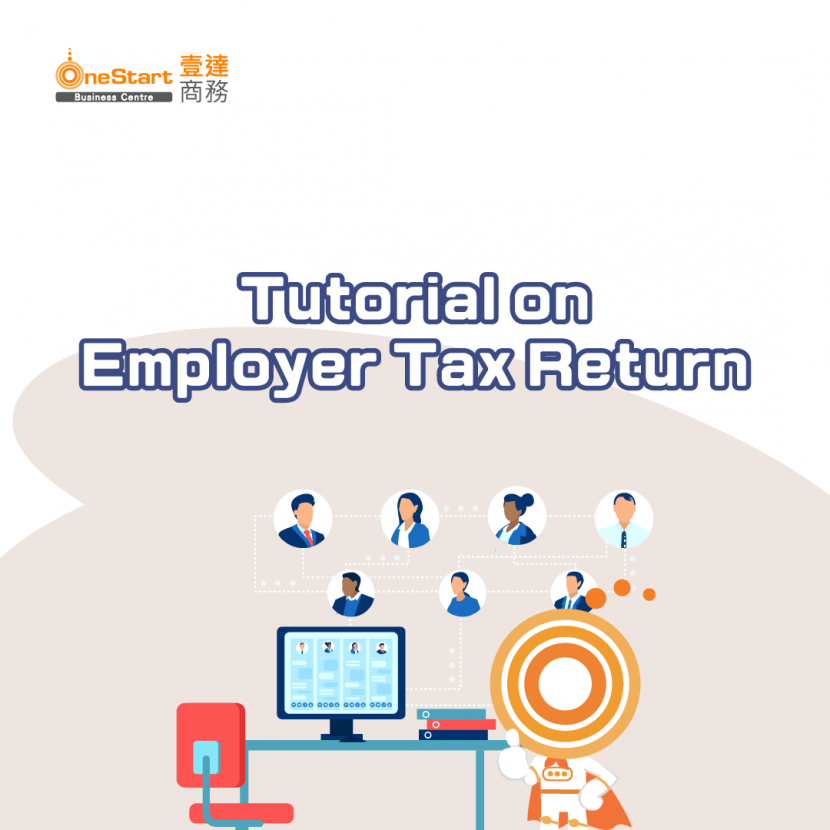Related Article:
What is the Difference between Accounting and Auditing? How to Distinguish between Their Duties?
What to Do If You Make Mistakes on Your Tax Return? How to Object to the Assessment?
Table of contents |
Hong Kong companies are responsible for reporting employee salary information to the Inland Revenue Department. This is crucial for both employee salary tax and company deductions, and any errors could result in hefty fines. Read on to learn how to submit an employer tax return.

Tax Responsibilities of Employers
1. Keep employee's payroll records
- Personal information (name, address, ID card / passport number and issuing location, marital status)
- Employment nature (full-time/part-time)
- Employment position (e.g., sales manager, salesperson, worker, lawyer, accountant, director)
- Salary amount (regardless of being paid in Hong Kong dollars, foreign currency, or elsewhere)
- Non-cash and fringe benefits (e.g., housing, travel benefits, shares, stock options)
- Contributions to employee and employer Mandatory Provident Fund (or similar schemes)
- Employment contracts and amendments
- Employment period
According to regulations, Hong Kong employers are required to keep the following employee’s payroll records for a minimum of 7 years and notify the Inland Revenue Department of any changes.
2. Declare remuneration paid to employees
Here are some examples of employee remuneration details:
- Salary/wages
- Leave pay
- Director's fee
- Commission
- Bonus
- Back pay, payment in lieu of notice, Terminal awards or gratuities
- Payments from retirement schemes
- Employer's portion of salary tax
- Education benefits
- Gains from Share Option Schemes
- Other allowances, perquisites, or rewards
- Pensions
Whether full-time, part-time, or contract-based employees, companies need to declare relevant employee salary details to the Inland Revenue Department. According to regulations, employers are required to submit an employer return annually to report these details.
Employer Tax Return
To complete the entire employer tax return filing process, it can be roughly divided into two parts:
- BIR56
- IR56
The IR56 form have 5 different types, corresponding to different employee statuses. After choosing the appropriate tax return form for filing, employers need to provide a copy of the form to employees for individual tax filing.
| Category | Employee Status |
| IR56B | Continuously employed (still employed on March 31) |
| IR56E | Newly hired employees |
| IR56F | Will cease employment (or deceased) |
| IR56G | Will leave Hong Kong for an extended period or permanently |
| IR56M | Non-employee individuals |
Filing Employer Tax Returns
There are three methods for submitting employer tax returns:
- In-person or postal submission of paper forms
- Online filing (authorized signer/authorized representative appointed by the employer)
- In-person or postal submission of the BIR56A paper form, accompanied by the IR56B form and related checklists on a CD, DVD, or USB (From 1 April 2024, this submission method is no longer accepted.)
Employer Tax Return Submission Date
Upon receiving the tax return forms from the Inland Revenue Department, companies are required to complete and submit the forms within one month. Even if there are no employees hired, employers still need to submit the Employer Tax Return and indicate "nil" in the report.

Authorized Signer
- Proprietor for a sole proprietorship business
- Precedent Partner for a partnership business
- Director, Company Secretary, Manager, Investment Manager (only applicable to open-ended fund company)
- Provisional Liquidator / Liquidator for a corporation
- Principal Officer for a body of persons
- Agent for a non-resident person
Late Submission or False Declaration of Employer Tax Returns
According to the regulations of the Inland Revenue Department, failure to comply with the reporting requirements can result in the following penalties:
- Failure to file employer tax returns on time
- Submission of false information
These actions may lead to a maximum penalty of HK$10,000 and repayment of three times the amount of underpaid tax.
Applying for an Extension to File Employer Tax Returns
If an employer needs to apply for an extension to file employer tax returns, they can submit a written request to the tax department, stating the following details:
- File number
- Company name
- Tax year
- Requested extension period
- Detailed reasons for the extension

Conclusion
Dealing with employer tax returns is a crucial and intricate task for Hong Kong companies, requiring consideration of various factors. Hiring a professional accounting team to manage the accounting work is the best choice for those unfamiliar with tax filing. OneStart's professional accounting team has years of experience and is trusted by customers. OneStart provides one-stop business support. For more information about our services, please call 3575 6888 or WhatsApp OneStart business consultants.
Click to WhatsApp OneStart:
Know More About Our Services:
 |
 |
 |













